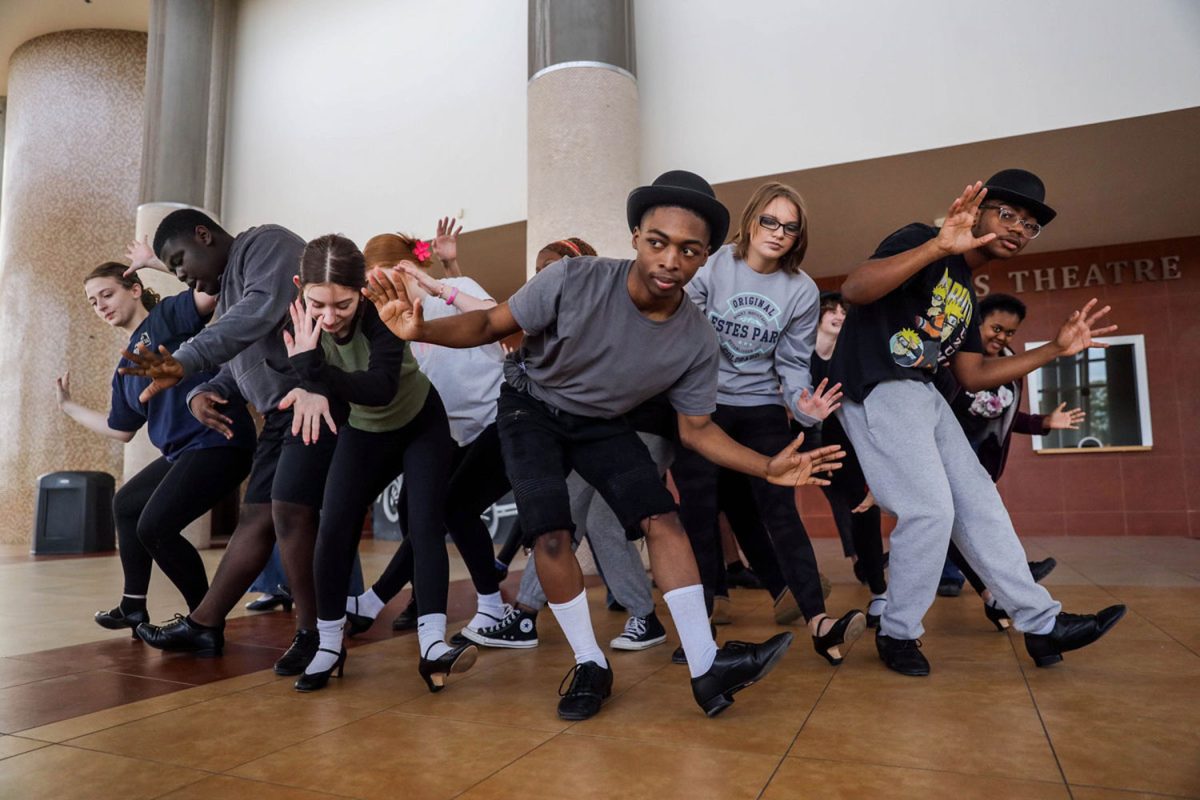Sparkling flapper dresses, sharp suits and silk shirts. Speakeasies, jazz, prosperity and crime: all aspects that characterize the Roaring 20s, an era recently brought to life on the stage of the Sullivan Performing Arts Center.
“Chicago”, brought by the Tiger Theatre Company, centers around two women from this time period, Roxie Hart and Velma Kelly, as they compete for the services of a lawyer that promises them both stardom and absolution, ultimately uncovering deeper themes.
“So ‘Chicago’ is essentially a satire about the corruption of fame and how we sometimes elevate criminality to a celebrity status,” head director Brandon Shoemaker said. “This first really came to be prevalent in the 1920s, particularly in the city of Chicago.”
The risque and sensual nature of this well known musical continue to raise concerns, with some wondering whether it is appropriate to perform for high schoolers; however, one main change already ensures this.
“Well first, what we’re doing is actually titled ‘Chicago: The High School Edition’, so Samuel French, the publishing house that owns the script, created an adaptation that’s substantially shorter,” Shoemaker said. “It cuts a few different songs that are in some cases too risque, but also, it’s just been cut for time. It’s cleaned up the language significantly. So a lot of that work was already done for us.”
Along with already scripted deviations from the original musical to the high school edition, other changes took place that not only ensure further propriety but also take into consideration the abilities of the performers.
“We have kept most elements of the original Broadway choreography but just changed it in a way that is number one easier for us as high schoolers and also is more appropriate,” senior Tyler Unger said. “A big part of that involved simplifying the costumes as well.”
Beyond issues of performance appropriateness, the high school edition also changed certain technical elements of the musical.
“Another really cool addition in the teen version is that in the Broadway edition, they use actual gunshots, but in the teen edition, it’s just the rim shot of a drum,” Unger said. “So even that has been changed.”
Despite all mentioned changes to the original “Chicago”, TTC continues to make sure the main essence of the show is preserved.
“We wanted to stay true to the artistry of Bob Fosse, the original choreographer and director,” Shoemaker said. “So a lot of those Fossey elements are still in there without being so scandalous.”
The show, even with changes, is still intended for audiences 13 and up as it dives into topics of crime, prohibition and murder. That said, important themes are still prevalent.
“I don’t feel like it’s too inappropriate,” junior Justin Gentry said. “You know, I feel like teens these days need to hear about certain topics that are talked about in the show.”
All issues of propriety aside, the lead-up to “Chicago” has proved to be quite the undertaking, with preparation for it differing from that of a normal play.
“Directing a musical is really different from directing a straight play in that you have all these component pieces that you rehearse for and then they all come together at once much later in the process,” Shoemaker said. “It’s kind of like putting together a jigsaw puzzle and not really seeing the full picture until you step back from it several weeks after you start it.”
As with most productions, countless hours of memorizing lines, blocking and tech rehearsals have gone into the final product, with practices starting over eight weeks prior to the actual show.
“It’s not something that you can just learn at once and then visit later the day of the show,” senior Mary Warren said. “It’s something you really have to work on, and once it gets closer to the show, it just gets very nitpicky because we want the routines to be very precise.”
“Chicago” will show on Dec. 14 and 15 at 7 p.m. and Dec. 16 at 2 and 7 p.m. Tickets are $15 for adults and $5 for students and can be purchased at ttcths.booktix.com or at the door.
“It’s been hours and hours of hard work,” Unger said. “But also just so rewarding and fun in the end.”




